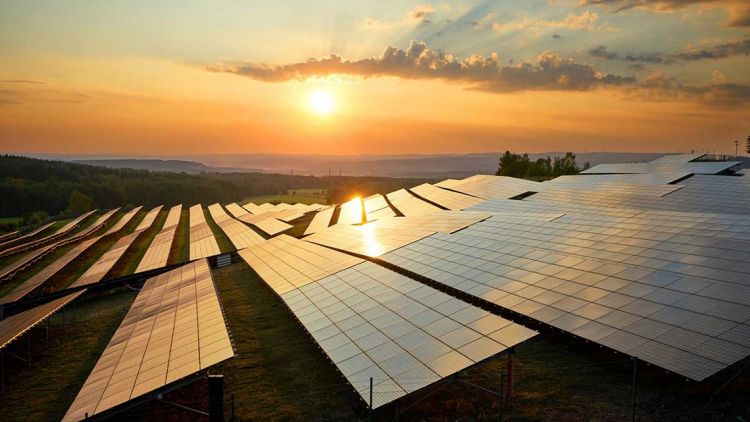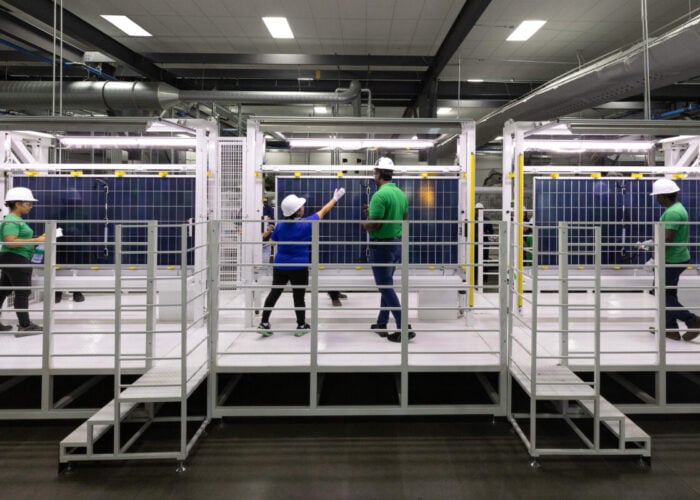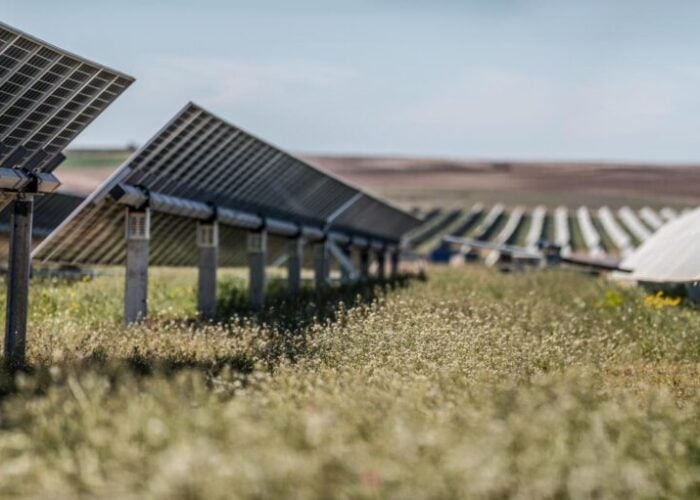
Leading solar manufacturers, utilities and developers including SunPower, ENGIE North America, Lightsource BP, Tesla and LONGi have signed a pledge to ensure the industry’s supply chain is “free of forced labour”.
The open letter, which was released today (4 February), has been signed by 175 companies within the solar industry and calls for more transparency in the supply chain to identify where raw materials that ultimately contribut towards the manufacture of PV panels have been sourced.
Try Premium for just $1
- Full premium access for the first month at only $1
- Converts to an annual rate after 30 days unless cancelled
- Cancel anytime during the trial period
Premium Benefits
- Expert industry analysis and interviews
- Digital access to PV Tech Power journal
- Exclusive event discounts
Or get the full Premium subscription right away
Or continue reading this article for free
Among the signatories are 8minute Solar Energy, EDF Renewables, JinkoSolar’s US division, and SunPower, whose head of policy, Suzanne Leta, said industry players “must be vigilant” in order to safeguard the solar workforce.
“Solar has the potential for enormous positive impact on the world, but that mission is void if products are made on the back of unethical labour practices,” Leta said.
The groups will help to develop a protocol for tracing raw materials and inputs.
The Solar Industry Forced Labor Pledge, which remains open for signatories, asks industry leaders to sign against a declaration which states “firm opposition to the use of forced labour within the solar supply chain.
“We hereby commit to helping ensure that the solar supply chain is free of forced labour and raising awareness within the industry on this important issue. To assist in these efforts, we support the development of an industry-led solar supply chain traceability protocol as a tool for identifying the source of primary raw materials and inputs and tracking their incorporation into finished products, including solar modules.”
The pledge has been put forward after a report by consultancy Horizon Advisory suggested that labour and resettlement programs in China’s Xingjiang region were linked with global polysilicon suppliers. Analyst Wood Mackenzie estimates that China accounts for around 75% of the world’s polysilicon capacity. The US government has banned some products made in Xingjiang over accusations of forced labour of the Uighur Muslim community, a claim which China has rejected.
John Smirnow, vice president of market strategy for trade body the Solar Energy Industries Association (SEIA), said that solar companies should “immediately move their supply chains out of the region”, and expects that most major PV suppliers will have done so by June this year.
“Given reports of labour abuses in Xinjiang and the inability to conduct independent audits there, solar companies should immediately move their supply chains out of the region,” he said, adding that the trade body will work with lawmakers in the US as well as the newly seated Biden administration to “make sure solar imports are proven to be free of forced labour.”
Zaid Ashai, chief executive of Nexamp, said the solar industry is at a “critical inflection point” as governments worldwide have ramped up the transition to renewable energy generation, but warned that this growth “cannot come at the expense of global human rights”.
“For this reason, at Nexamp we are fully committed to doing everything we can to identify and evaluate the origins of the materials we use, with particular attention to avoiding materials that can be tied to the Xinjiang region of China.”






